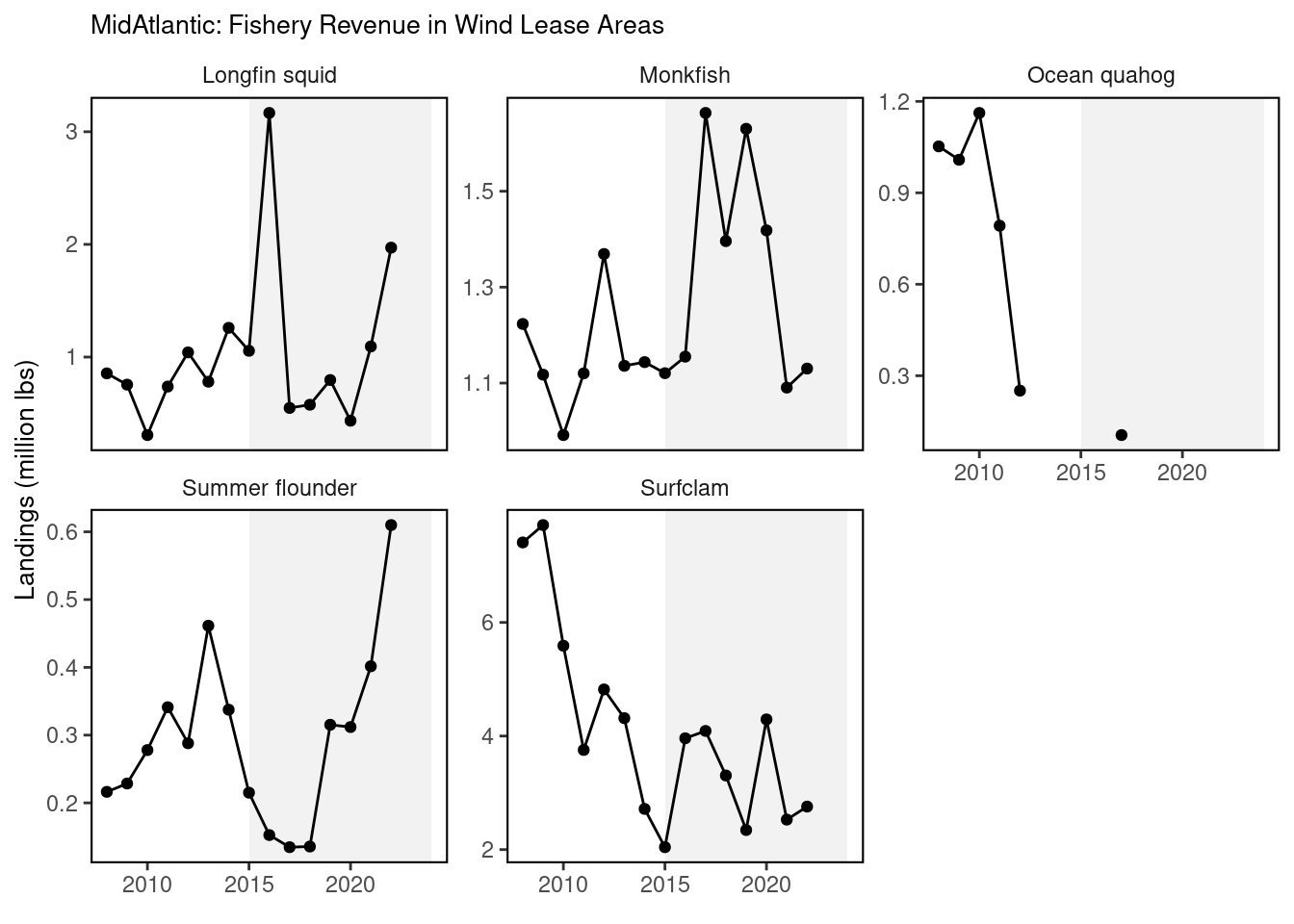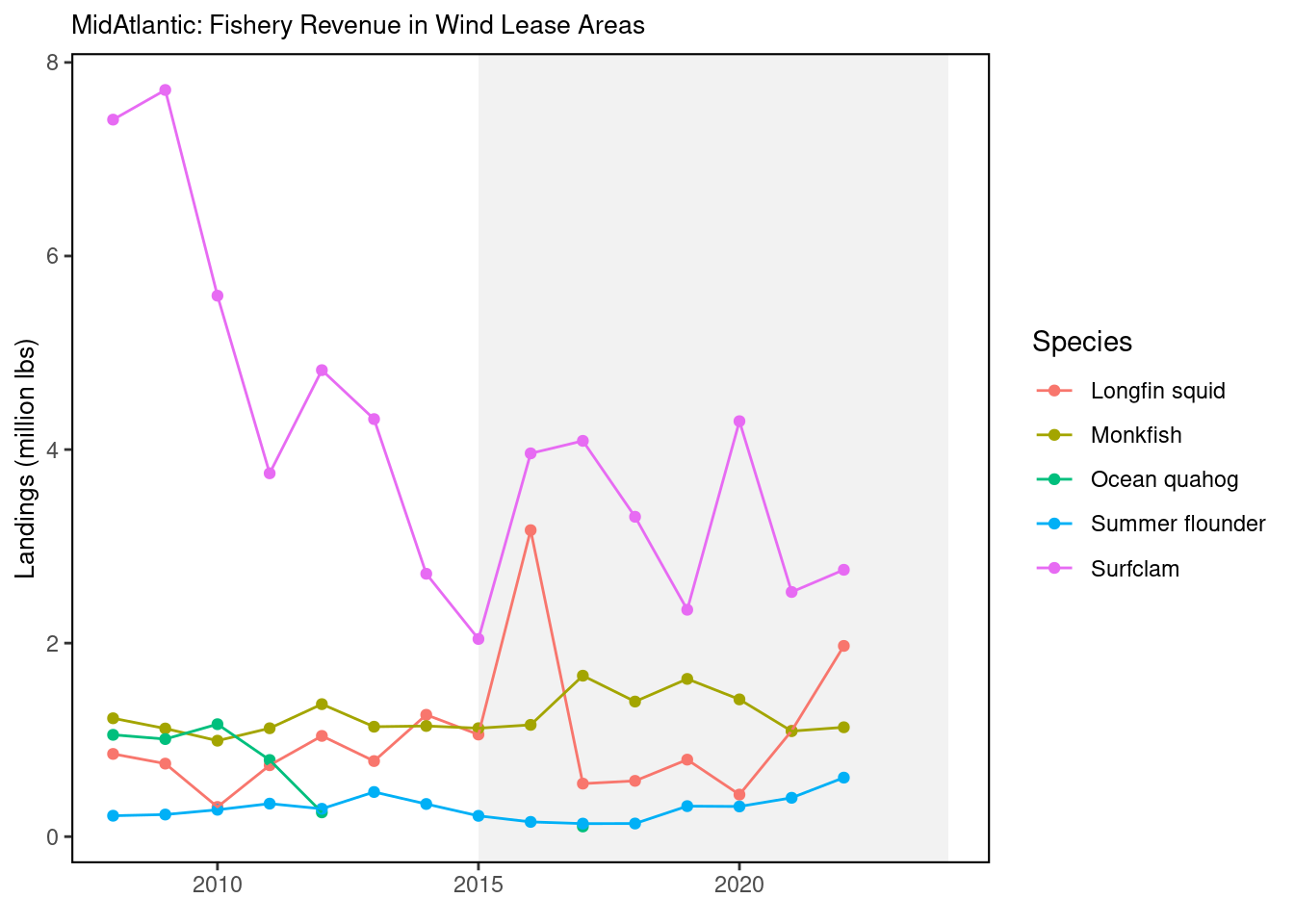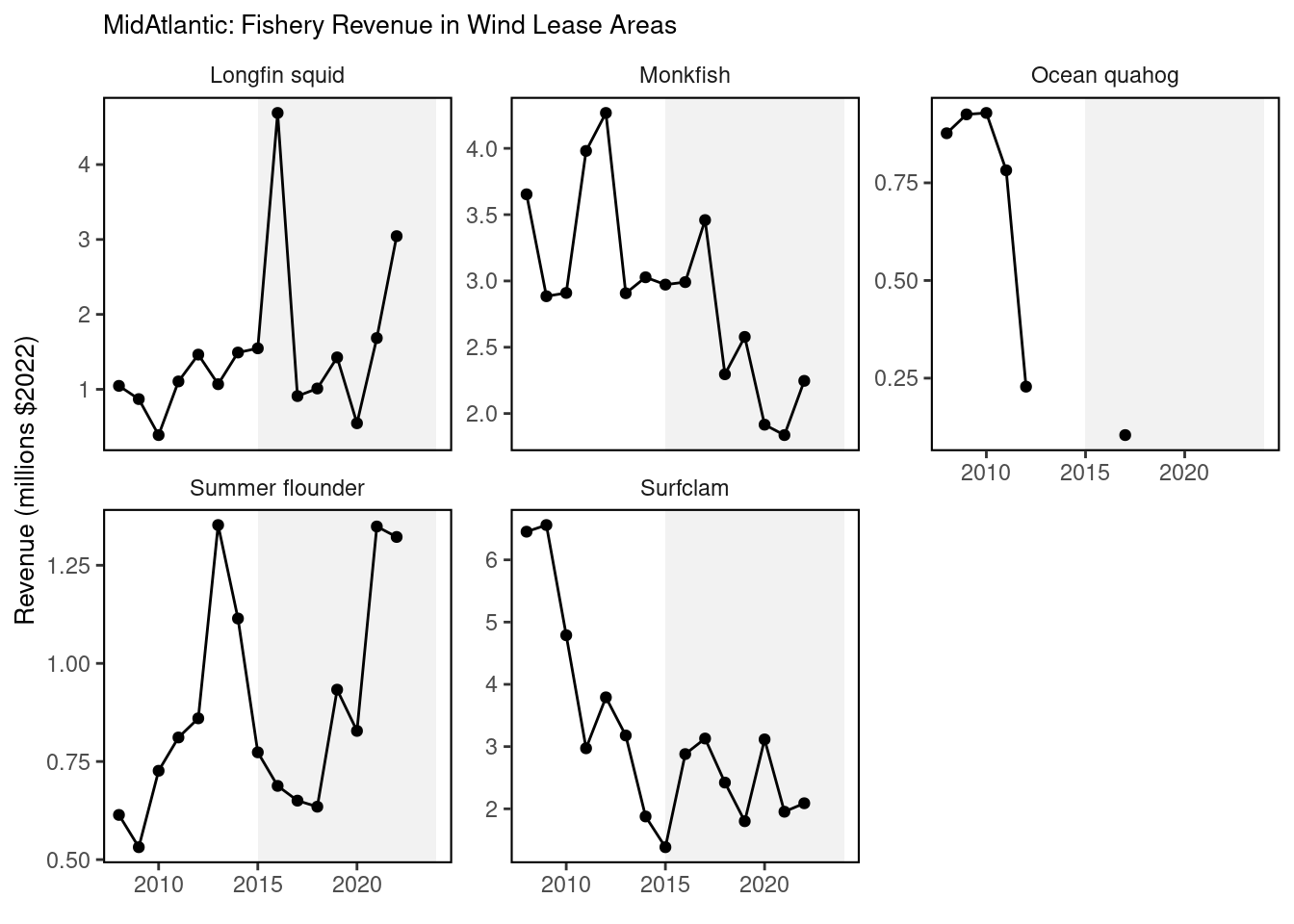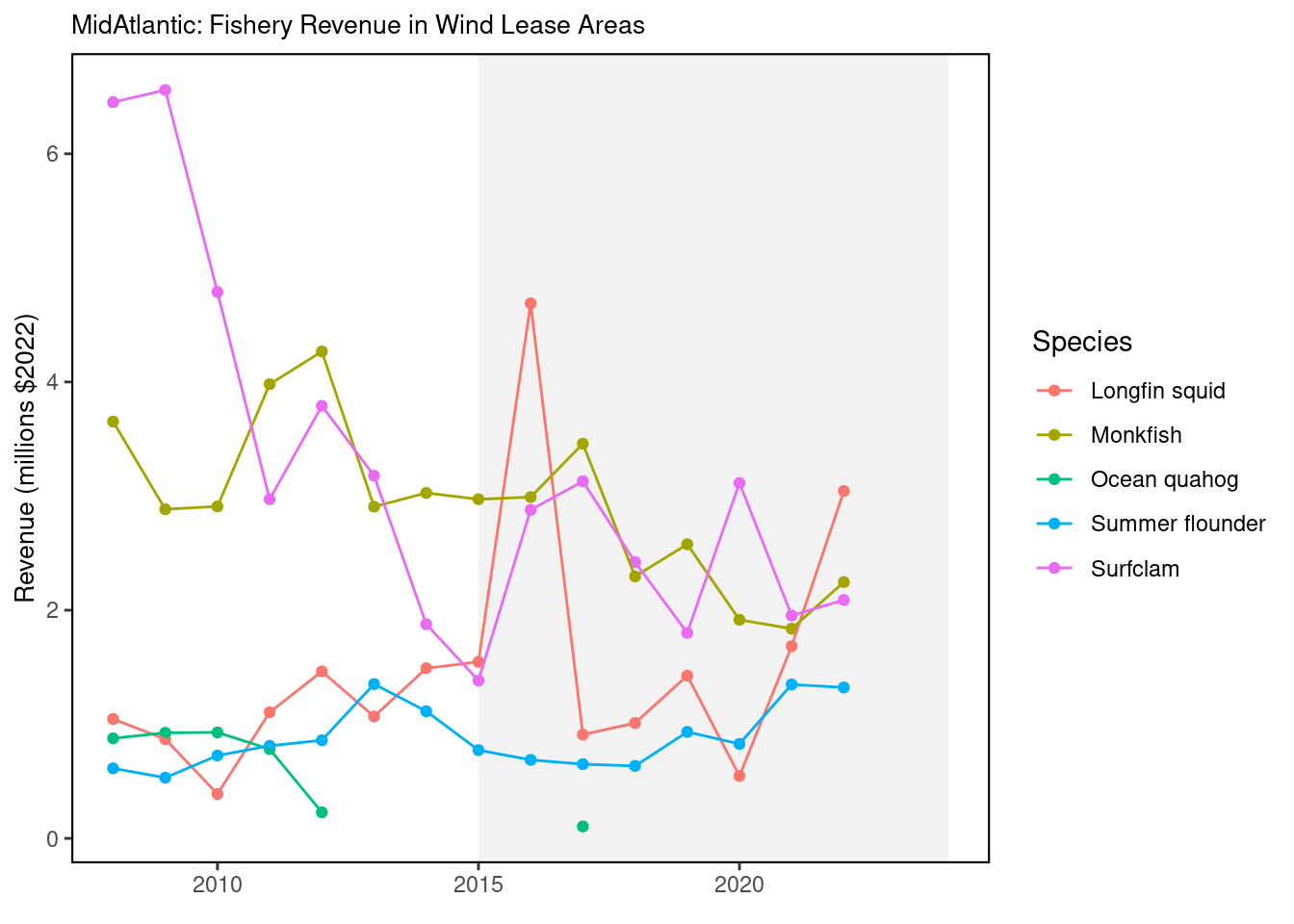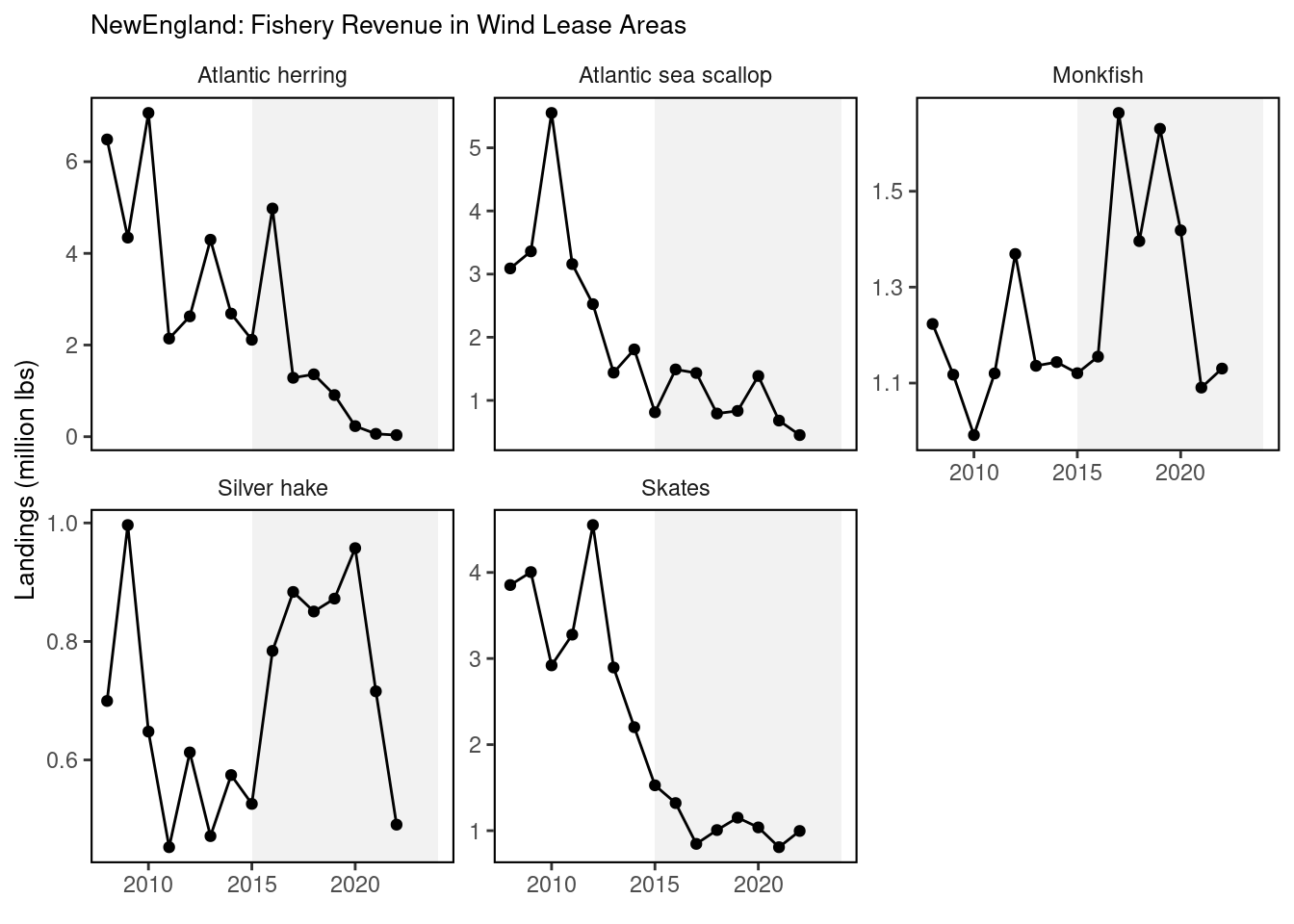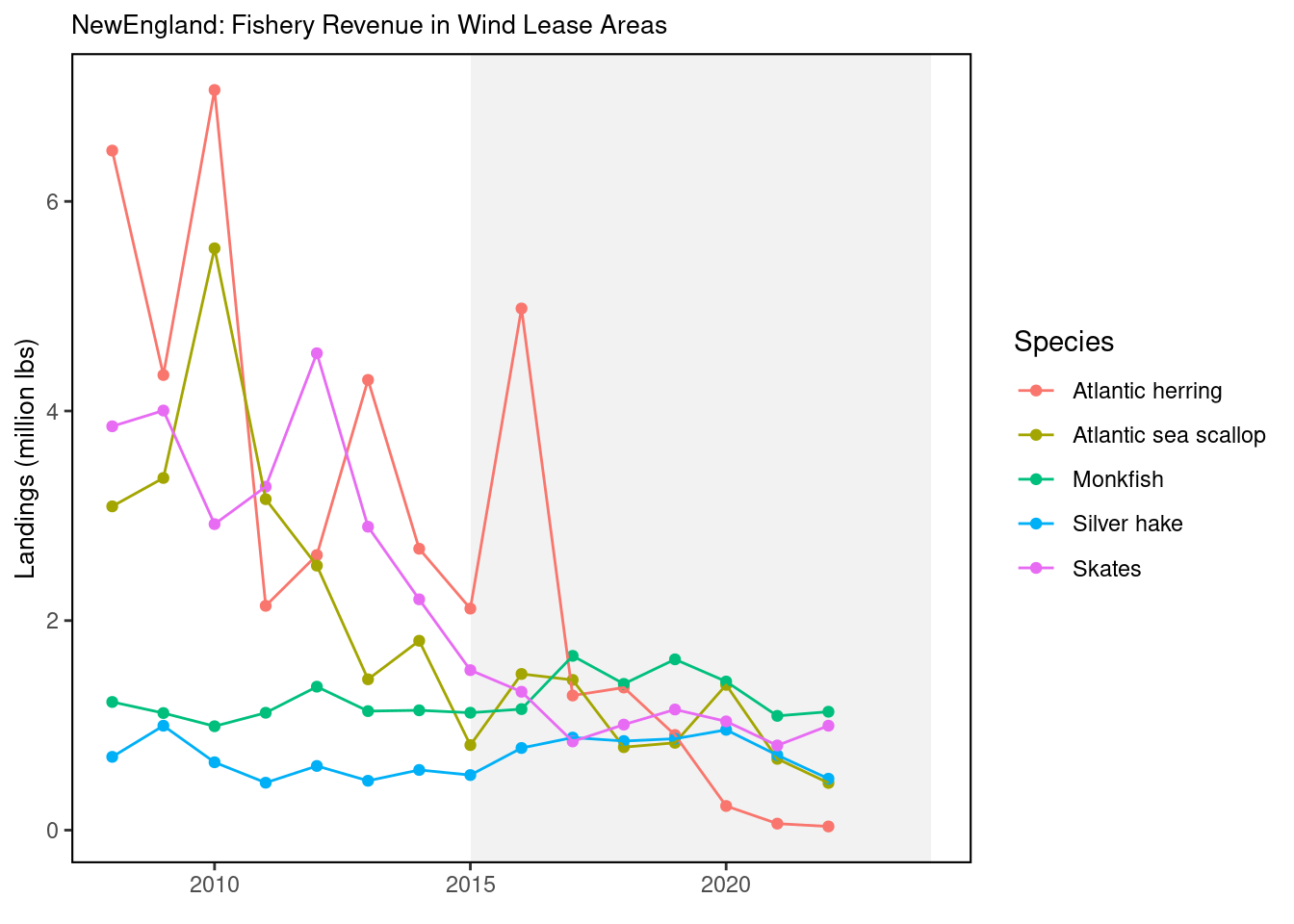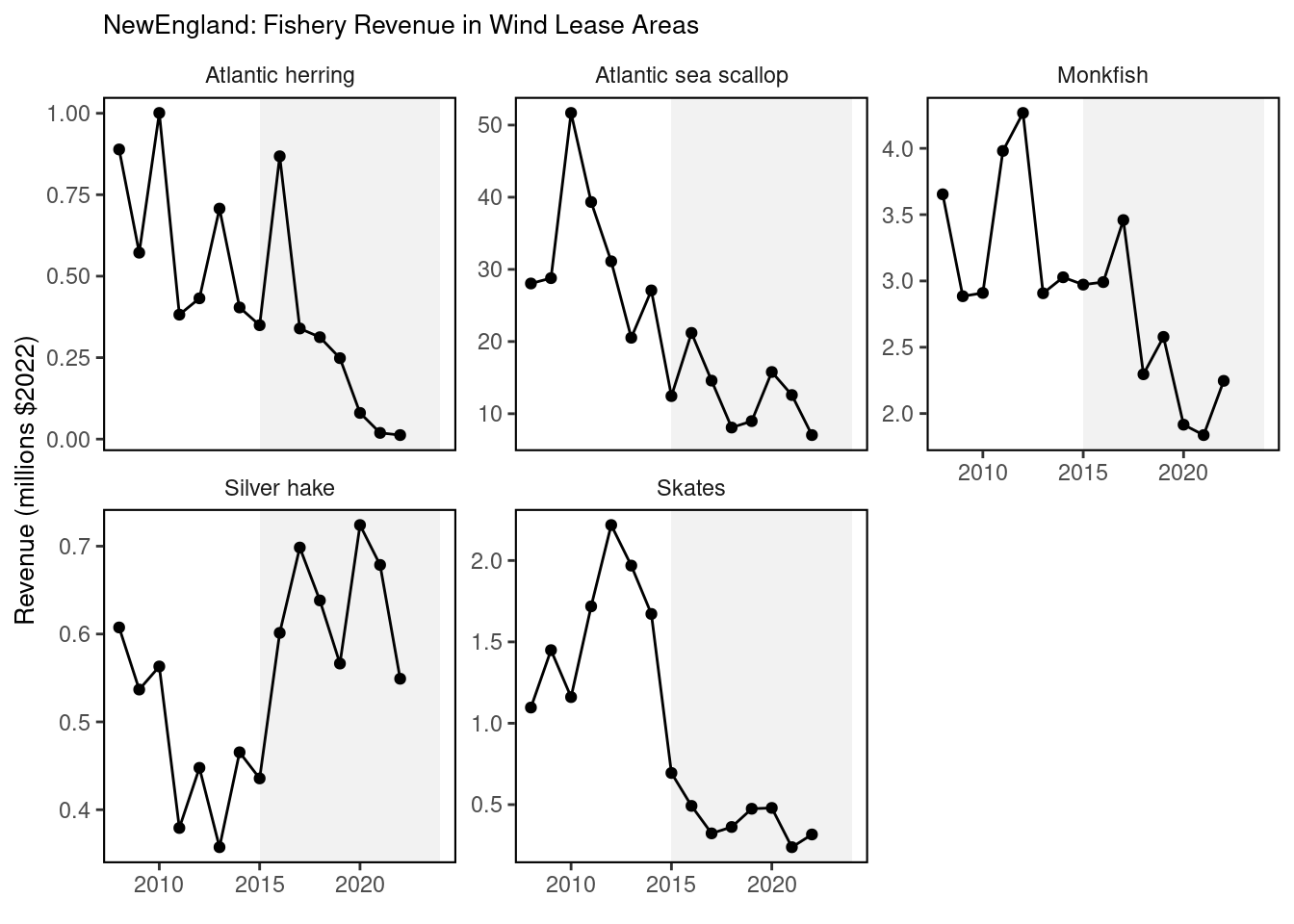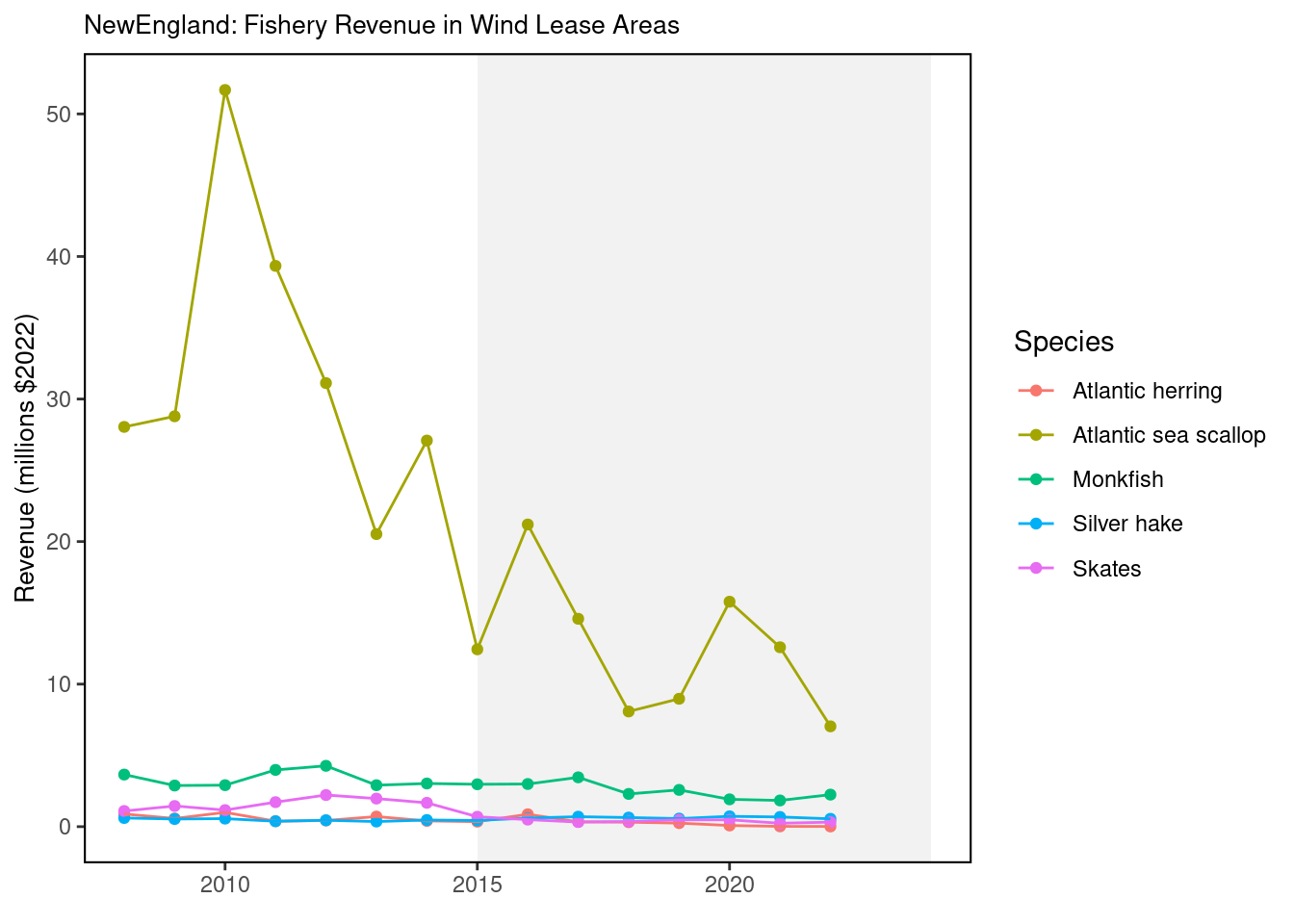78 Fishery Impacts from Offshore Wind Development
Description: The data presented here include landings and revenue of species managed by the New England and Mid-Atlantic Fishery Management Councils within existing offshore wind lease areas.
Indicator family:
Contributor(s): Douglas Christel, Benjamin Galuardi, Nicole Morgan
Affiliations: ?
78.1 Introduction to Indicator
Estimates of landings and associated revenue of managed species within existing offshore wind lease areas provide an estimate of the potential socioeconomic impacts to fishery participants and fishing communities from regional offshore development projects. The presence of offshore wind project infrastructure could result in fishing effort displacement outside of lease areas, which could affect the scale, composition, and location of fishery landings and revenues and interactions with protected species. These data present absolute landings/revenue within lease areas, but also relative proportions of regional landings/revenue within lease areas to illustrate the scale of potential impacts to specific fisheries.
78.2 Key Results and Visualizations
Figures include annual landings and revenue for each managed species caught within existing offshore wind lease areas. Tables include average annual landings and revenue for the top ten species caught within existing and proposed offshore wind lease areas and the maximum proportion of total annual regional landings and revenues for all managed species.
78.3 Indicator statistics
Spatial scale: Offshore wind lease areas throughout the Exclusive Economic Zone from Maine through North Carolina
Temporal scale: Annual from 2008-2023
Synthesis Theme:
78.4 Implications
Plots of annual landings and revenue within existing and proposed offshore wind lease areas show a general decline since 2008 for managed species with periodic spikes in both metrics. This suggests lower reliance on offshore wind lease areas for most fisheries, although some are more reliant upon these areas at large, particularly the longfin squid, surfclam, scallop, herring, yellowtail flounder, pollock, redfish, black sea bass, and skate fisheries. The Gulf of Maine lease areas overlap with a substantial portion of historic groundfish fishery landings/revenues, with haddock landings/revenues increasingly overlapping with existing lease areas in recent years.
78.5 Get the data
Point of contact: Douglas Christel (douglas.christel@noaa.gov)
ecodata name: ecodata::wind_revenue
Variable definitions
- Managed species; Definition: Fishery species managed by the New England and Mid-Atlantic Fishery Management Councils or the Atlantic States Marine Fisheries Commission
- Year; Definition: Calendar year in which fishery landings occurred
- Landings; Definition: Weight of each species landed, as reported in dealer reports; Units: pounds
- Revenue; Definition: Total amount paid to the vessel for each species landed; Units: 2022 dollars
- Percent GARFO Landings; Definition: Proportion of landings of each managed species from within existing/proposed offshore wind lease areas relative to the total landings of that species reported annually to the Greater Atlantic Regional Fisheries Office; Units: Percentage
- Percent GARFO Revenue; Definition: Proportion of revenue of each managed species from within existing/proposed offshore wind lease areas relative to the total revenue of that species reported annually to the Greater Atlantic Regional Fisheries Office; Units: Percentage
Indicator Category:
78.7 Accessibility and Constraints
Please email douglas.christel@noaa.gov for further information or request supporting data from nmfs.gar.data.requests@noaa.gov.
tech-doc link https://noaa-edab.github.io/tech-doc/wind_revenue.html
